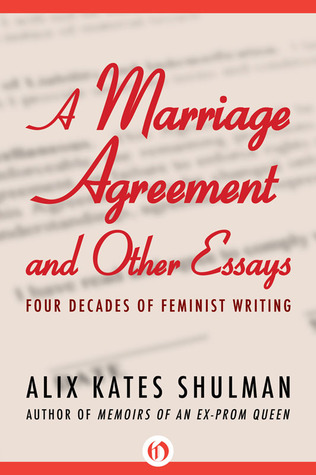A Conversation with Alix Kates Shulman
Mack McKay is a powerful capitalist who defines himself by what he owns and will own, while Zoltan Barbu has a highly romantic view of himself based on his past success as a writer. Why are these two men attracted to each other?
Each one has something the other covets: Mack has wealth, which Zoltan, like many artists, secretly longs for but publicly repudiates. Zoltan has literary celebrity, which Mack knows his wife Heather values above his own achievements. Both men are adept at manipulating the world to get what they want, and each thinks he can game the other in that hallowed competition that underlies male bonding. Traditionally, the woman is a mere pawn in this game, but in Ménage, Heather is fully as adept at going after what she wants as either of the men. The lengths to which all three will go to achieve their desires form the basis of the comedy.
 In terms of feminism, how do you see Ménage fitting into the arc of your work?
In terms of feminism, how do you see Ménage fitting into the arc of your work?
As a fiction writer I have always balked at restrictions imposed by various preconceptions about what feminist fiction should be. In my new collection, A Marriage Agreement and Other Essays, one essay, “The Taint,” examines the meaning of feminist fiction. I very much like Naomi Weisstein’s broad definition: “Feminist fiction is fiction that does not admire patriarchy or accept its ideology. Nor does it accept its male characters as necessarily more exciting, important, or valuable than its female characters. In addition, the female characters are valued enough to be presented in their full humanity, whether they be villains or heroes, and … are neither necessarily nice nor necessarily beautiful. In this way feminist fiction challenges the patriarchal belief in the fixed and eternal nature of men and women.” With Ménage, I decided to portray my three protagonists as equally but variously villainous, and see what happens. Since it’s a satirical comedy, I had a lot of fun making my characters outrageous, each in a different way. One thing you can say about Ménage is that it definitely does not admire patriarchy or its ideology; it makes fun of it.
In the “The War in the Back Seat” I was so struck by your heartbreakingly accurate depiction of the madonna/whore syndrome young women had to put up with in the 40s and 50s. That essay was published in the Atlantic Monthly in 1972. Did you get a lot of response from readers?
In that essay I examined popular fiction by the likes of Philip Roth, Dan Wakefield, J.D. Salinger, etc. whose adolescent protagonists’ tragedy was that girls resisted their crude sexual advances. The Atlantic published two pages worth of responses: two defensive ones from male writers I discussed in the essay; three from male readers, ranging from insightful to incensed; and three from vindicated female readers (“It all rang so true, so true”; “If it were within my power, I would make [it] assigned reading for all men and indeed all women …”).
Emma Goldman, about whom you wrote two books, has been a lifelong influence and mentor. Which of her books would you most recommend to young feminists today?
At risk of seeming self-promoting, I’d suggest my own anthology Red Emma Speaks, which, unlike any other, includes not only Goldman’s essays and speeches but also excerpts from her vivid 1000-page autobiography, Living My Life.
For years you spent long periods at a seasonal home in Maine. What prompted you to write “Summer Jew”?
The weird experience of facing down someone hoping to convert me to Christianity made me reflect deeply on my Jewish identity as never before and also on my place in a community with a tiny minority of Jews. As an atheist, this was all new to me, so how could I not write about it?
Do you see the lasting effects of the main advances made during the second-wave of the women’s movement, or are they eroding?
My final essay, “The Kenning,” looks at the limit of what any generation can accomplish. Each wave brought huge changes, but many are incomplete or fragile, subject to the vicissitudes of politics and culture. Not that I fear women will lose the vote or be kicked back to the kitchen, but poverty remains predominantly female, and without access to abortion and child care women are devastatingly penalized economically. Only a unified, organized movement can secure our rights, yet the movement waxes and wanes. But take heart: as Rabbi Tarfon said centuries ago, “You are not required to complete the task, but neither are you free to abandon it.”



